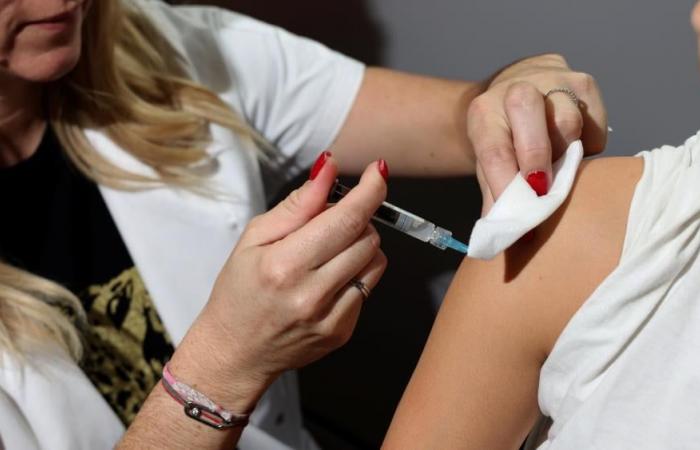
They patiently wait for their turn in the waiting room of the infirmary of their school, Raspail College in Carpentras. On this Monday morning, Warren and Nollan, both 5th graders, are waiting to get vaccinated against the papillomavirus, or HPV. If the first is a little apprehensive about the moment, his friend seems rather calm. This morning of vaccination is part of the second campaign to fight the virus. “A sexually transmitted virus“, Nollan understood well.
This campaign began after the All Saints’ Day holidays throughout the department, and will last until December. That for the second dose will start in six months. Nearly 50 Vaucluse schools are participating.
At Raspail college, it was Dr. Lorente and nurse Marie-Laure Barre who volunteered to vaccinate the college students. “We are lucky to have a vaccine against this virus, its effectiveness has been proven. Last year, I had a patient who had ENT cancer linked to this virus so I want to protect future generations“, underlines the nurse. For his part, the retired doctor wants “participate in a mission of general interest“..
“A subject of public health”
In France, each year, 6,400 cases of cancer linked to papillomavirus are detected, and only 55% of 12-year-old girls and 41% of boys of the same age are vaccinated – the age at which it is recommended to be vaccinated. “Our goal is to reach at least 30% of these young girls and boys. Last year, for a first test run, we did not reach this target“, announced in September, Loic Souriau, director of the ARS (regional health agency) of Vaucluse.
Vaccination against HPV is not yet a reflex for all parents and still generates fear: “Last year 43 students responded compared to 31 this year (out of 205 students, Editor’s note)“, relates Marie-Cécile Lambert, the school nurse. For Loic Souriau, it is a “real public health subject, these are cancers that kill“.
“Something taboo”
So how can we explain this low vaccination rate? “There are several factors: we are talking about something taboo, it is sometimes counterintuitive to talk about sex life to 11 or 12 year old children, it is not part of the culture, and this can be linked to family habits“, lists Loic Souriau.
If vaccination of children between 11 and 14 years old is strongly recommended for better effectiveness of the vaccine, before sexual life has started, adults up to 26 years old can also be vaccinated in pharmacies or by their general practitioner. However, three doses will be required.
Health





